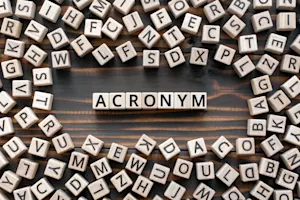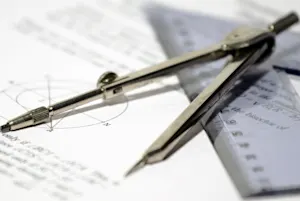What Makes This Word Tick
Ambidextrous is a delightful word that describes the remarkable ability to use both the left and right hands with equal skill. It’s a bit of linguistic magic that paints a perfect picture of human adaptability and dexterity. The word is as versatile as those it describes, popping up in discussions about everything from baseball to brain function.
If Ambidextrous Were a Person…
If ambidextrous were a person, they'd be that one friend who effortlessly switches from playing tennis with their right hand to writing a best-selling novel with their left. They’d be the life of a party, as comfortable shaking hands or juggling balls, regardless of which hand they’re using. Truly, they'd have both charm and utility in equal measure!
How This Word Has Changed Over Time
From its roots in the Latin words "ambi-" meaning both and "dexter" meaning right or favorable, ambidextrous initially referred to an unusual advantage. Through the centuries, it’s maintained a consistent meaning but gained some metaphorical buddies along the way. It’s since been used to describe multi-skilled individuals in various contexts, not just those with nimble fingers.
Old Sayings and Proverbs That Use Ambidextrous
While our dear ambidextrous hasn’t wormed its way into old proverbs, it certainly aligns with the spirit of phrases like "a jack of all trades." This word embodies the all-around capability and flexibility that such sayings celebrate.
Surprising Facts About Ambidextrous
Did you know that only about 1% of the population is truly ambidextrous? That's a rare club to be in! Even more fascinating, ambidexterity isn’t just for humans. Some animals, like certain types of parrots and octopuses, also exhibit this versatile trait.
Out and About With This Word
In everyday life, "ambidextrous" might pop up at a Little League game when referring to a young player equally adept at hitting and pitching both right- and left-handed. It’s a definitive label for those few who really can use either hand for any task—a talent that’s often more envied than understood!
Pop Culture Moments Where Ambidextrous Was Used
The word ambidextrous has figured prominently in sports commentary, particularly in baseball, where "switch-hitters" are celebrated for their ambidextrous prowess. From the silver screen to the baseball diamond, this word captures a kind of superhuman adaptability.
The Word in Literature
Ambidextrous may not headline in classic novels, but it plays a supporting role in descriptive narratives, adding a layer of intrigue or mystery to characters who possess this rare talent. In detective stories, an ambidextrous villain might evade capture by confounding investigators with misleading clues.
Moments in History with Ambidextrous
Leonardo da Vinci, the Renaissance polymath, is often celebrated as a historical figure embodying the essence of ambidexterity—not just in his ability to write with both hands, but in mastering both art and science. His era-defining genius is perfectly encapsulated by this versatile word.
This Word Around the World
While English speakers might use ambidextrous, the trait is recognized and celebrated worldwide. In Japanese, "rākudesuna" captures a similar essence, and in German, you might encounter "beidhändig." These global cousins all cherish the same delight in dual-handed skill.
Where Does It Come From?
Ambidextrous blends the Latin "ambi" (both) and "dexter" (right-handed), which might leave us wondering why lefties weren’t directly mentioned! The term sublimely suggests having two "right" hands—an ancient linguistic nod to dexterity’s perceived advantage.
How People Misuse This Word
Some might describe anyone who uses both hands at all as ambidextrous, but true ambidexterity entails equal proficiency. It’s not just about being able to open a jar with your left hand once in a while!
Words It’s Often Confused With
Bilateral: Describes symmetry or two-sided arrangements, not necessarily skill.
Adept: A general term for skillfulness, without the hand-specific nuance.
Versatile: Describes a range of abilities or adaptability, often conflated with ambidexterity.
Additional Synonyms and Antonyms
The closest synonyms include versatile and ambilateral, while antonyms might be single-handed or even right- or left-handed, underscoring the specific duality of the trait.
Want to Try It Out in a Sentence?
Here's one: "Emma amazed her classmates by writing with her right hand while simultaneously solving a Rubik's Cube with her left—truly an ambidextrous wonder!"
















